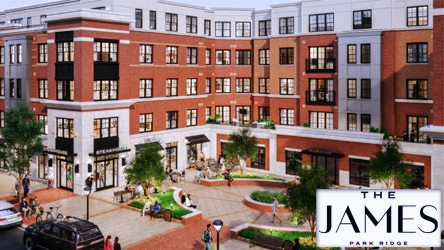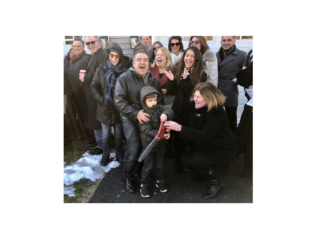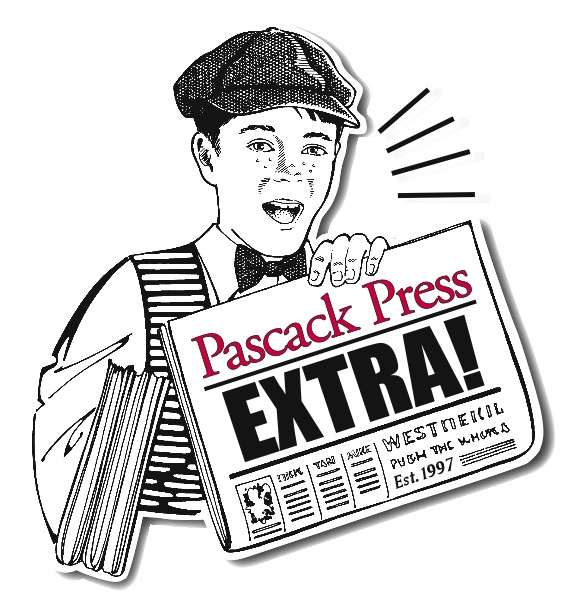
PASCACK VALLEY AREA, N.J.—Fair Share Housing Center has announced lotteries for preliminary applications for affordable housing units in Montvale and Park Ridge and elsewhere in the Garden State.
In a notice it sent via email the morning of April 27, Fair Share said a drawing was imminent—at 3 p.m.—for affordable units at The James in Park Ridge. [See also “Leasing to launch at The James redevelopment project,” April 12.] This development offers 24 affordable one-, two-, and three-bedroom rental apartments.
These apartments are designed to meet the borough’s “fair share” of the growing need for affordable housing in New Jersey and are available to qualified applicants whose combined household income meets the criteria for affordable housing. Because this is a new property, a random selection will be held for all preliminary applications. Subsequent to the deadline, applications will be processed on a “first-come, first served” basis.
There is a bit more time to get applications in for Village Springs at Montvale. This development offers 16 affordable one-, two-, and three-bedroom for-sale condos. A random lottery will be held for all preliminary applications received on or before 3 p.m. on May 20.
For more information visit njhrc.gov.
Fair Share podcast
Meanwhile, a live conversation that the nonprofit Fair Share, based in Cherry Hill, is hosting on Facebook, “All About Housing: Heal the Wound,” which asks whether affordable housing proponents are “making progress in the State of New Jersey,” runs April 29 at 6:30 p.m.
Guests include James Williams IV, director of Racial Justice Policy, Fair Share Housing Center, and Bassam Gergi, attorney, Fair Share Housing Center.
Williams and Gergi will discuss FSHC’s “1968 Continues” racial justice agenda, advocating for the New Jersey Legislature to pass A1919/S250, the Fair Chance In Housing Act, and FSHC’s new #HealTheWound campaign.
The conversation is facilitated by Elorm Ocansey and streamed live on Facebook at facebook.com/FairShareHousingCenter.
Previous podcasts featured Elise C. Boddie, founder and director of The Inclusion Project at Rutgers Law, and Peter J. O’Connor, founder of Fair Share Housing Center, on “their work to realize the promise of Brown v. Board of Education and the significance of inclusionary housing in the march to justice and equality.”
As well: “Housing as a Human Right” moderated by Norrinda Brown Hayat and featuring Law Center senior attorney Tristia Bauman, with Fair Share’s Leilani Farha and Joshua Bauers.
In conversation with Fair Share
We reached out to FSHC in February after it announced its podcast series, which aims to discuss issues surrounding the enforcement of the state’s Mount Laurel Doctrine, the controversial judicial interpretation of the New Jersey State Constitution. [See “Fair Share launching podcast; will housing forum take on overdevelopment?” on Feb. 13.]
Mount Laurel requires that municipalities use their zoning powers in an affirmative manner to provide a realistic opportunity for the production of housing affordable to low- and moderate-income households.
Fair Share Housing Center describes itself has having “grown to be the public interest voice of the class of low-income and moderate-income households in the law and policy of the Mount Laurel Doctrine.”
Critics, including many in the Pascack Valley, decry the doctrine as a boon to developers and assert its aggressive enforcement is destroying the quality of life in Bergen County, which already is the most densely populated county in New Jersey.
We wondered if the series would welcome dissenting or critical voices—and how Fair Share assessed its successes and ongoing challenges in the Pascack Valley area.
We also wondered about the meaning to Fair Share Housing Center of the tagline of its podcast series, “We’re coming to get our check,” which appeared to quote Dr. Martin Luther King Jr. on reparations in his buildup to the 1968 Poor People’s March on Washington.
Finally, we wondered how the organization would respond to specific criticism of its practices, as forwarded by several Pascack Press readers.
Executive Director Adam M. Gordon wrote back:
“We’re starting this podcast to spread the word about exciting new opportunities for working families, particularly families of color, to move into wealthier towns with access to jobs and good schools, because of the Mount Laurel doctrine.”
He added, “We welcome input on topics we should cover, but we cannot promise in a monthly show to get to any given topic.”
Gordon cited King “in correctly point[ing] out many of America’s suburbs were built on racially discriminatory government policies that gave white families funding to build wealth and prohibited Black families from doing the same.”
He said, “If your readers have not read Ta Nehisi-Coates’ article The Case for Reparations, it lays out this history quite well. Too often when people are opposed to ‘overdevelopment’ what they really mean is that they should close the doors after they moved in.”
Gordon said, “That attitude, whether consciously or not, due to the history Dr. King focused on and Mr. Coates compellingly presents, continues to further the deep wealth disparities in New Jersey. As the New Jersey Institute for Social Justice has compellingly pointed out, ‘wealth in New Jersey is designed by race, with the median net wealth for white families at $352,000—the highest in America—but just $6,100 for Black families, and $7,300 for Latina/Latino families, respectively.’ Discussion of these issues will certainly be a key part of our podcast.”
Gordon said Pascack Valley towns, like much of the state, “have had a mix of towns that have taken productive approaches to affordable housing and towns that have fought tooth and nail for decades.”
He said, “We’re proud of the work we’ve done to help bring more than 330 towns into compliance, including those in the Pascack Valley, to tackle the scourge of exclusionary zoning and the socioeconomic and racial segregation it causes.”
Gordon said, “We believe that as many of these homes continue to be built, that the sky will not fall, much as generations ago Harrington Park survived when now-Sen. Cory Booker and his family moved there.”
The Fair Chance in Housing Act would prevent landlords from solely using criminal background checks to reject housing applications. Discriminatory landlords lack the evidence to demonstrate that their actions improve safety within their communities and instead are using background checks as a tool to prevent access to housing for Black and brown residents with criminal records.
Habitat for Humanity of Bergen County gala
In related news, Habitat for Humanity of Bergen County held a virtual gala, celebrating volunteering, honoring its Grayheads and ReStore volunteers, on April 21.
Habitat for Humanity’s mission is to provide decent, affordable homes for hardworking Bergen County families. It joins in a common goal with other affiliates of this international organization to eliminate poverty housing and homelessness from the face of the earth by working in partnership with people in need.
Using volunteer labor and donated funds and materials, Habitat builds or rehabilitates simple, decent, homes and sells them to low income families at cost but with no interest charged.
Habitat’s Grayheads are a group of retired men and women who have come together to help make other people’s dreams of home ownership a reality. They’ve been assisting Habitat Bergen for more than 25 years.
Habitat Bergen says, “On Wednesdays you’ll find them laughing and enjoying each other’s companionship on the job site.”
Bergen ReStore, at 121 Carver Ave., Westwood (entrance on Hooper Avenue) sells new and gently used donated furniture, household goods, and building materials to the public for a fraction of retail prices.
All proceeds and donations support Habitat for Humanity of Bergen County in the building of affordable housing for local families.
Pascack Press welcomes brief and respectful letters to the editor on timely local topics. See our Letters guideline on page 2 and sound off!



